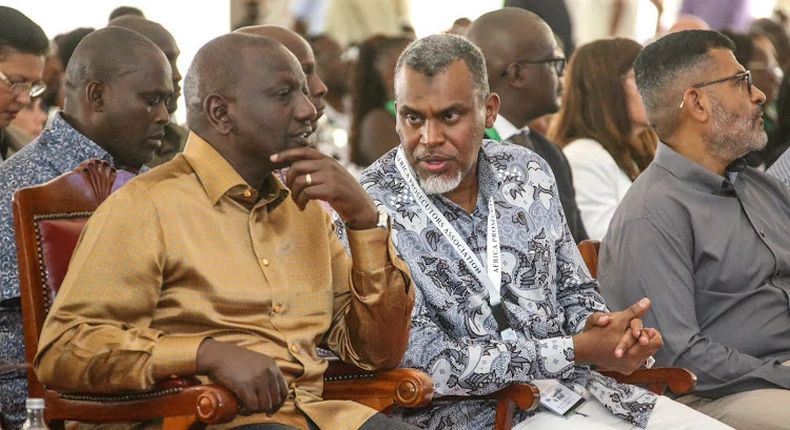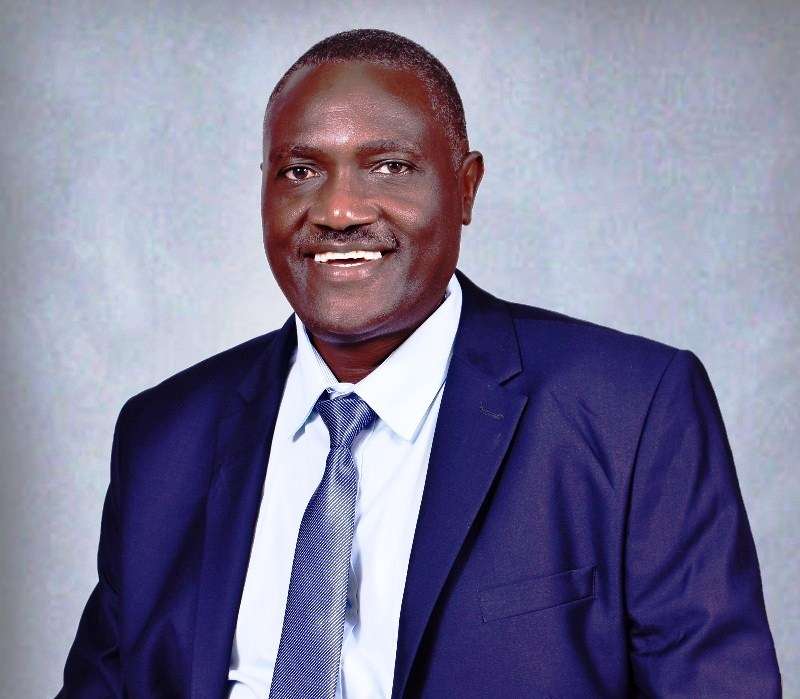These appointments are seen by some as a significant achievement for the Somali community, which has historically been marginalized in Kenya’s political and security spheres. However, the concentration of power in the hands of one community has raised questions among critics about the implications for national cohesion, inclusivity, and representation
By Mdadisi Mmoja
President William Ruto’s recent decision to nominate former IEBC boss Issack Hassan as the new Chairman of the Independent Policing Oversight Authority (IPOA) is sparking debate about the increasing concentration of security-related leadership positions in the hands of individuals from the Kenyan-Somali community. Critics argue that this trend reflects a broader pattern in which top leadership roles in Kenya’s security apparatus are being entrusted to members of this specific ethnic group.
Hassan’s appointment follows a series of similar moves by the presidents, which have seen other influential security posts filled by individuals of Kenyan-Somali origin. Among them are Noordin Haji, the Director-General of the National Intelligence Service (NIS), and Mohamed Amin, who heads the Directorate of Criminal Investigations (DCI). Additionally, before the recent appointment of Douglas Kanja as Inspector General of Police, Noor Gabow, also of Somali descent, held the position of Deputy Inspector General in charge of the Administration Police Service.
Further highlighting this trend, following Ruto’s cabinet reshuffle, Aden Duale, a senior Somali leader, held the prestigious position of Cabinet Secretary for Defence before being redeployed to the Environment docket. This series of appointments has led to growing speculation about whether there is a deliberate effort by President Ruto to place members of the Somali community in these high-security roles.
A Shift in Security Leadership
These appointments are seen by some as a significant achievement for the Somali community, which has historically been marginalized in Kenya’s political and security spheres. However, the concentration of power in the hands of one community has raised questions among critics about the implications for national cohesion, inclusivity, and representation.
Many are now questioning whether the same level of scrutiny would apply if President Ruto were to fill key security positions with individuals from Kenya’s larger communities, such as the Kalenjin, Kikuyu, Luhya, or Luo tribes. Would the country react differently if Ruto were to appoint a majority of security chiefs from these dominant groups, some of which already hold significant political and economic power in the country?
The Motivations Behind Ruto’s Appointments
It is apparent that Ruto’s administration has opted for a strategic approach that seeks to sidestep Kenya’s tribal politics by placing leaders in key security roles who are relatively detached from the dynamics of ethnic competition. Some observers believe that this may be a deliberate attempt by the president to bring stability to the security sector, away from the tribal allegiances that often influence Kenyan politics.
At the same time, there is recognition that many of the Somali-origin security commanders who have risen through the ranks have proven themselves capable and loyal during critical periods in the country’s history. For instance, during the 1982 attempted coup against former President Daniel arap Moi, Major General Mahmoud Mohammed, a Somali officer in the Kenya Army, played a pivotal role in quelling the rebellion. Mohammed’s actions earned him a promotion to the position of Chief of General Staff (now known as the Chief of Defence Forces), further solidifying the role of Somali-origin officers in Kenya’s security leadership.
Major General Hussein Ali was seconded to Vigilance House in 2004, Kenya’s police headquarters, from his military role as Second Commander of the Western Brigade in Gilgil. Ali rose swiftly to the rank of Major General under President Mwai Kibaki’s watchful eye. However, his most defining moment came during the tumultuous post-election violence following Kenya’s disputed 2007 elections, a crisis that threatened to collapse Kibaki’s presidency.
As ethnic clashes erupted and the outlawed Mungiki sect posed additional threats, Ali faced a daunting challenge: a police force stretched thin and an escalating death toll of over 1,300 people, with 600,000 others displaced. Despite allegations of using excessive force and accusations of crimes against humanity, Ali stood firm, maintaining that his actions restored order and prevented further bloodshed. His pragmatic leadership was crucial in stabilizing the nation at its most vulnerable moment, effectively salvaging Kibaki’s government.
Although he later faced scrutiny by the International Criminal Court (ICC) in 2010, Ali was vindicated, with the judges ruling that he bore no culpability for the violence.
Similarly, when former President Uhuru Kenyatta sought to address the administrative challenges within the Nairobi County Government under Governor Mike Sonko, he appointed Major General Mohamed Badi, a Somali officer, to head the Nairobi Metropolitan Services (NMS). The agency was established to manage critical services in Nairobi following the transfer of key functions from the Nairobi City County Government to the national government.
Under Major General Badi’s leadership, NMS achieved remarkable progress in areas such as road construction, healthcare, water provision, and urban regeneration. Notable accomplishments included upgrading public hospitals, digging boreholes to address water shortages, and rehabilitating Nairobi’s deteriorated road network.
Renowned for his disciplined and focused demeanor, Major General Badi became a symbol of efficiency, earning both praise and criticism for his military-style approach to leadership. His tenure showcased the potential of blending military precision with public administration, leaving a lasting legacy on Nairobi’s development.
Implications for Inclusivity and National Unity
While some see the rise of Somali-origin leaders in key security roles as a sign of progress for minority representation, others view it with suspicion, fearing it could lead to the alienation of other communities from the decision-making processes that shape the nation’s security landscape. Critics argue that while merit should remain the primary criterion for such appointments, the balance of ethnic representation is also important for fostering national unity.
The growing concentration of power among Somali leaders in Kenya’s security sector raises important questions about the long-term implications for the country’s governance and inclusivity. As Kenya continues to grapple with issues of ethnic and political marginalization, these appointments may serve as a litmus test for how the nation navigates the complexities of diversity in high-stakes government roles.
The debate over the ethnic makeup of security appointments under President Ruto is likely to continue, with some calling for a more balanced approach that ensures all communities are fairly represented in Kenya’s critical national security positions. How these dynamics play out will have lasting effects on the country’s political landscape, especially as the nation seeks to strengthen its security institutions and build a more inclusive future.




